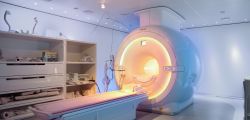Important discovery in diabetes treatment
Members of the NextDREAM consortium focused on monitoring and measuring the effectiveness and safety of using artificial intelligence to treat diabetes patients who have an insulin pump and a sensor for continuous subcutaneous glucose measurement. In the course of a six-month study involving a random sample of patients, consortium members compared the performance of the DreaMed Advisor software to that of specialist doctors treating diabetes patients. First, data on continuous sugar measurement and the given insulin doses was entered into DreaMed Advisor, which then proposed optimised insulin doses. These were approved remotely by a doctor and sent to patients as a text message via DreaMed Advisor, so that they could program their insulin pump with the new values. In the study, DreaMed Advisor was pitted against doctors, who also assessed whether the software gave correct advice to patients or not. The results of the study showed that DreaMed Advisor was at least as good at estimating patients’ insulin requirements, based on blood sugar levels, as specialist doctors from the world’s foremost medical centres, such as those at Harvard and Yale universities.
As Prof. Tadej Battelino, head of the Department of Endocrinology, Diabetes and Metabolic Diseases at the Paediatric Clinic of the Ljubljana University Medical Centre, told Nature Medicine, the study shows that using artificial intelligence, such as DreaMed Advisor, can be as safe and effective as traditional treatment by a diabetologist. Using DreaMed Advisor in everyday diabetes treatment can improve patient care and provide new ways of safe, remote diabetes management.
The study is thus an important contribution to improving the life quality of diabetes patients, as it enables more accurate insulin dosing, while also increasing the patients’ independence and reducing the number of visits to clinics.
Republished: https://www.uni-lj.si/in_front/2020100111585021/




